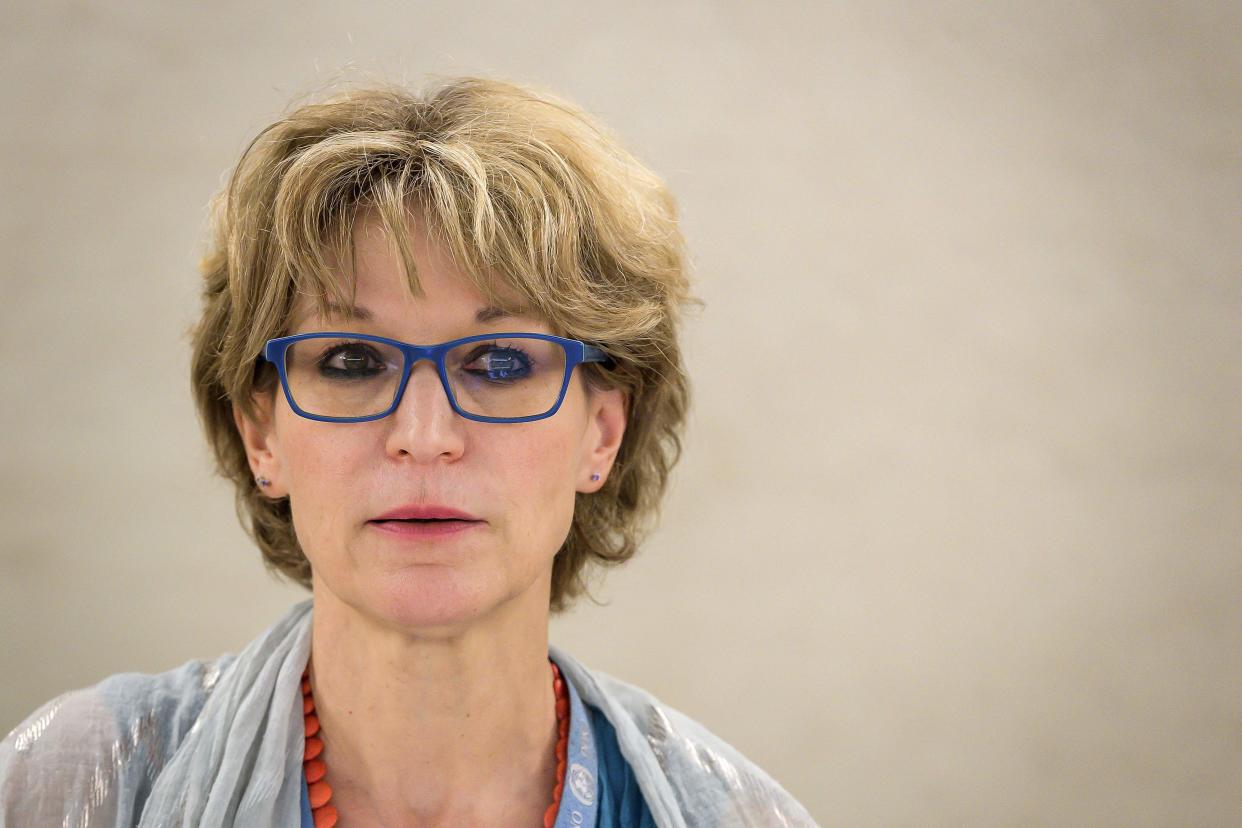Saudi denies threatening to harm UN official and claims to be a human rights advocate

- Oops!Something went wrong.Please try again later.
The Saudi official accused of delivering threats against a United Nations envoy investigating the murder of journalist Jamal Khasoggi has denied the allegation.
Awwad Alawwad, head of the president of Saudi Arabia’s Human Rights Commission, also suggested the story alleging he warned UN officials in Geneva last year that special rapporteur Agnes Callamard would be “taken care of” if she refused to back off her investigations was “concocted” to distract the from Riyadh’s successes in advancing human rights.
“While I cannot recall the exact conversations, I never would have desired or threatened any harm upon a UN-appointed individual, or anyone for that matter,” he wrote in a series of tweets on Thursday.
Ms Callamard told The Guardian earlier this week that she had been warned by UN officials in January 2020 that a Saudi official had warned she could be targeted by unspecified enforcers that Callamard would be “taken care of” if she was not silenced or halted.
The Saudi officials at the January 2020 meeting criticised her investigation into the Khashoggi murder and accused her, without evidence, of taking money from Qatar, a rival of Riyadh.
Read more:
Suez canal news live: Shipping lane blocked by Ever Given vessel
Everything we know about the ship grounded in the Suez Canal
Built out of spite, Lebanon’s skinniest building now among most valued real estate
Israel election exit polls suggest deadlock despite Netanyahu gaining most seats
Saudi media ignored reports about Ms Callamard’s allegations, which have been confirmed by UN officials. The Saudi regime newspaper al-Riyadh last year called Ms Callamard “an advocate for terrorists” and “a legal mouthpiece for whoever pays the most.”
In the years since Khashoggi’s abduction and murder inside the Saudi consulate in Istanbul by security enforcers recruited from the inner circle of Crown Prince Mohammed bin Salman, reports have emerged detailing the global activities of clandestine Saudi kill teams targeting dissidents and their patrons.
Though Ms Callamard did not reveal the name of the man who made the threats, it was percolating on the lips of international officials until Mr Alawwad disclosed his own identity.
Though he did not challenge any specific details of Ms Callamard’s account, he rejected any suggestion he had threatened her.
“I am disheartened that anything I have said could be interpreted as a threat,” he wrote. “I am an advocate for human rights and I spend my day working to ensure those values are upheld.”
He said any threats of violence were against his “moral code” and “a violation of the most sacred tenets” of his Islamic faith, though he offered no explanation as to what he might have meant by saying that Ms Callamard could be “taken care of” by other Saudi officials.
A former minister of culture and ambassador to Germany, Mr Alawwad said that “as a former diplomat I understand the critical importance of dialogue even with people we may strongly disagree with”.
But even mild criticism of Prince Mohammed is not tolerated in the kingdom, an absolute monarchy. Powerful members of the royal family who have disagreed with Prince Mohammed’s increasingly iron grip on power have been arrested, and allegedly subject to torture.
Critics of the regime are targeted in social media by harassment campaigns likely orchestrated by troll farms bankrolled by the regime.
Ms Callamard, a French national, published a 101-page in 2019 that accused Prince Mohammed, the de facto ruler of the Saudi kingdom, of being behind Khashoggi’s killing. Last month, the United States released an intelligence assessment also concluding that Prince Mohammed himself likely ordered Khashoggi’s abduction.
The Washington Post journalist was lured to the Saudi consulate in Istanbul where he was strangled and dismembered. His body has yet to be found. Those implicated in his killing in a trial widely dismissed as a sham have largely been acquitted or “forgiven” by Khashoggi’s family.
”I truly hope that this story was not concocted to distract from the important work we are doing to advance human rights in Saudi Arabia,” Mr Alawwad wrote. “No country is advancing faster on reforms than us right now.”

